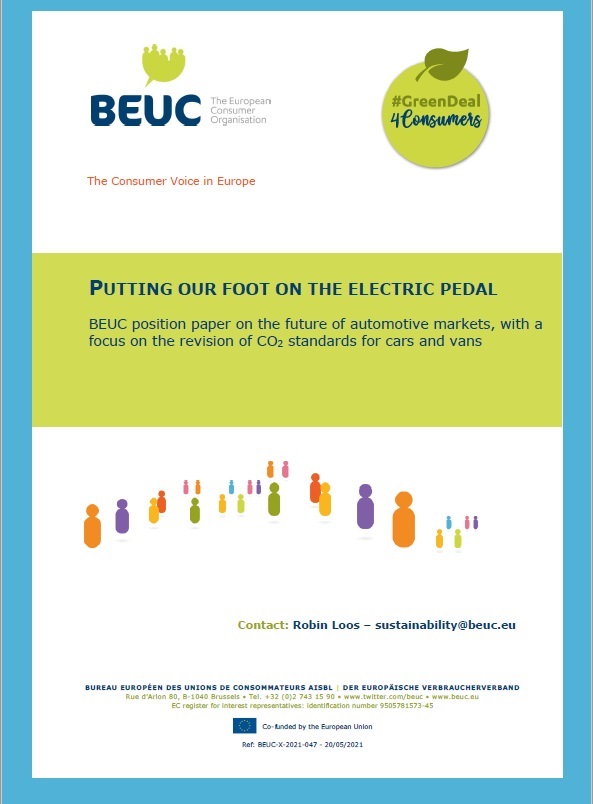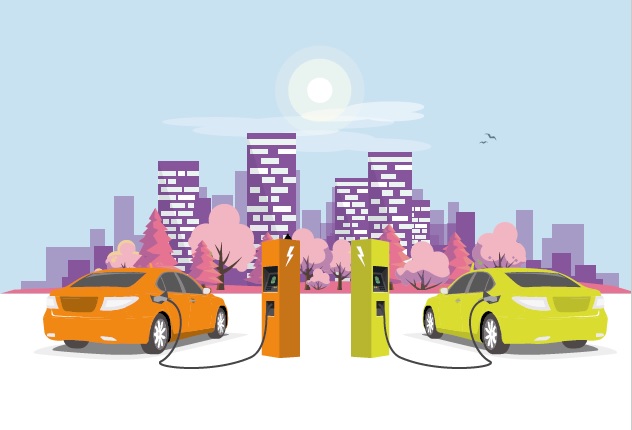A cleaner, affordable, and convenient automotive market for Europeans
A cleaner, affordable, and convenient automotive market for Europeans
As part of its effort to cut down on greenhouse gas emissions, the European Commission is expected to overhaul its automotive policy. This is crucial as CO2 emissions from transport are increasing, mainly because of higher petrol consumption by cars. The Commission’s proposals are expected in July as part of its ‘Fit for 55’ package to lower emissions by 55% in 2030.
Consumer behaviour is a make-or-break factor for the success of this effort. BEUC has therefore issued a new position paper on curbing CO2 emissions and the future of automotive markets.
How EU automotive policy could benefit the daily lives of consumers
Bringing the benefits of electric driving to people
Electric cars are already the cheapest option today for many consumers, recent BEUC research finds. Moreover, people buying second- and third-hand cars stand to make significant savings from going electric. Turning such forecasts into reality depends on actually bringing electric cars to market. The EU can stimulate this by legislating for stricter CO2 emissions reduction targets for cars. Taking 2021 as a base year, these targets should be 25% by 2025, 40% by 2027, 60% by 2030, with a final phase-out date of petrol and diesel cars in 2035.
Removing regulatory flexibilities
Existing flexibilities in automotive law pose a risk to reducing road emissions. For instance, current regulation and laboratory testing conditions encourage the sale of plug-in hybrids. BEUC research finds these bring little to no economic benefit to consumers, with full electric cars always providing better financial value across a car’s lifetime. There is also growing evidence that the laboratory testing method for plug-in hybrids gives too much weight to the portion of kilometres driven on the electric motor. Daily use of plug-in hybrids relies more on fossil fuels, which brings their role as ‘compliance car’ into question.
Making charging convenient
Charging an electric car should be as easy as fuelling a petrol car. This requires investment into public charging infrastructure. Decision-makers should also seize the opportunity of the review of the relevant EU law here – the Alternative Fuels Infrastructure Directive – to always allow on-the-go charging by debit card, while making fees transparent and clearly stated in price per kWh.
Better inform consumers when buying a car
The current EU car label is of little value to would-be car buyers. It is, for instance, only required in print media and its design is not standardised. Consumer groups advise decision-makers to replace it by a harmonised label – similar to the EU energy label – that people can use to easily compare information about factors such as emissions, running costs, or real driving range (in the case of electric cars). As opposed to the previous points, current indications suggest the EU will not propose anything on this matter in July.
Beyond automotive policy
Energy policy also plays a role in cleaning up Europe’s car sector. The bloc’s efforts on automotive laws should therefore take place in tandem with its work on renewable energy and the energy performance of buildings. If done well, this will give electric car drivers easy access to convenient charging – with renewable electricity – where they live, work, or carry out their daily activities.
See also
- BEUC’s wider view on EU mobility policy and consumers: Breaking out of fossil-fuelled mobility
The European Consumer Organisation
Europäischer Verbraucherverband
Bureau Européen des Unions de Consommateurs



